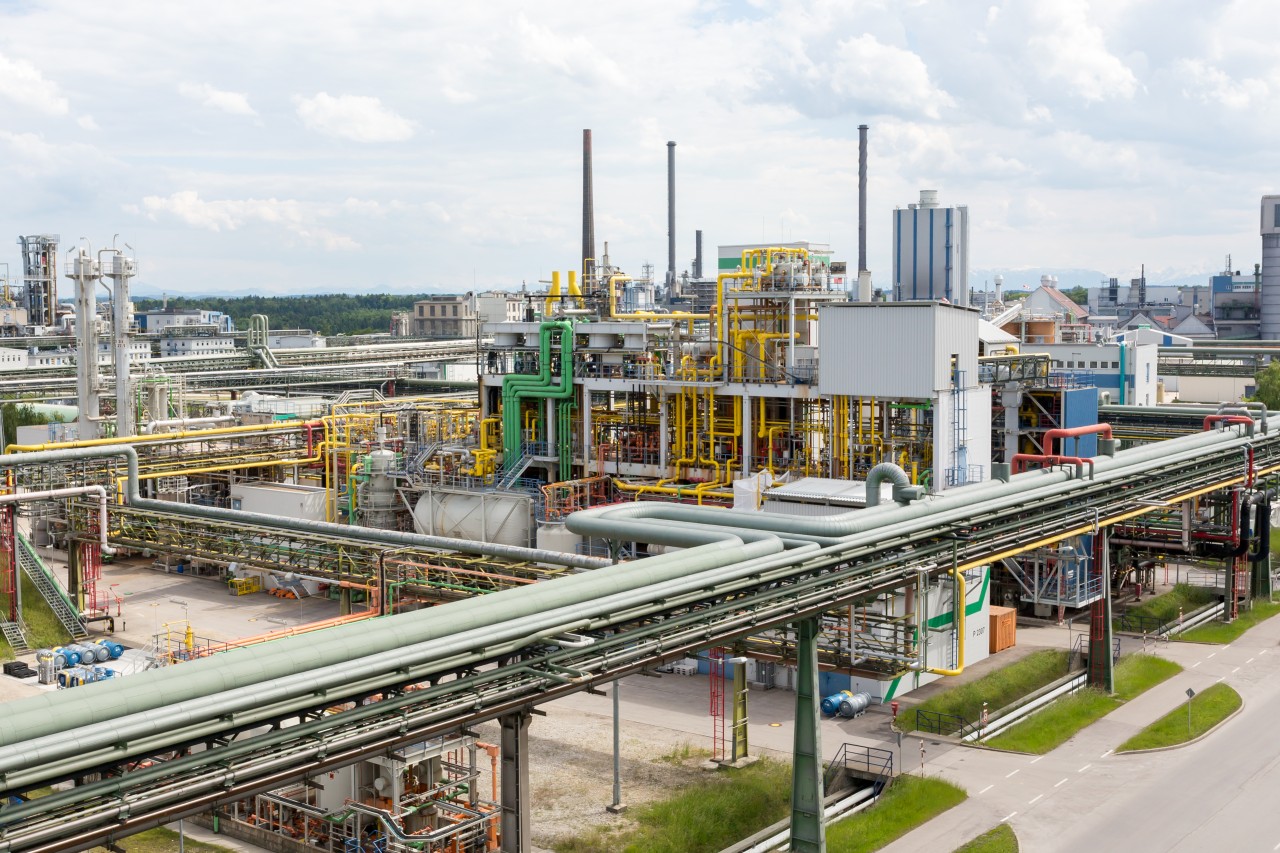
Renewable HYdrogen and MEthanol Bavaria
RHYME Bavaria
WACKER suspends work on the RHYME Bavaria project.
Sustainably produced hydrogen and methanol: WACKER launched the RHYME Bavaria project at its Burghausen site in mid-2020 with the goal of converting green hydrogen and unavoidable CO2 emissions into carbon neutral methanol for use in the production of silicones. To that end, WACKER had been planning to build a water electrolysis system and a methanol plant in Burghausen. The project was designed to demonstrate an initial step toward defossilizing chemical processes and products.
After more than three years, WACKER has decided to put the project on hold in response to economic realities. Because it requires so much electricity, and electricity prices are high, the production of renewable methanol cannot currently compete with its fossil-based counterpart. Implementing the project today would require funding to cover operating costs for the first few years, and numerous applications to acquire that funding have been unsuccessful.
At the same time, the regulatory landscape requires the project to go on stream before 2028 – a timeline we can no longer meet due to the lack of funding.
Nevertheless, WACKER hopes to move forward with the project in the future. Doing so will require a different set of circumstances: specifically, we would need large amounts of renewable electricity at competitive prices, a corresponding electricity and hydrogen infrastructure, lower regulatory hurdles and unbureaucratic funding programs.
Regardless of RHYME Bavaria, WACKER will continue to follow through on its commitment to climate neutrality and is implementing numerous projects around the globe to that end. And its dedication has been recognized: late last year, WACKER’s Net Zero 2045 objective received external validation through one of the most important sustainability assessments – the CDP. WACKER was one of only a handful of companies worldwide to achieve the highest score in the Climate Protection category.
